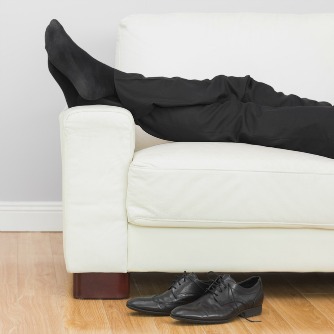NAP: ALL THE ADVANTAGES
Supplements to aid sleep

There is evidence to document the deleterious effects of too little sleep, ranging from disturbances to cognitive processes in a compromised immune system.
Brice Faraut, the Université Paris Descartes-Sorbonne (France), and colleagues enrolled 11 healthy young men who used to sleep seven to nine hours every night, do not smoke and do not normally of daytime naps, and subject them to a sleep study.
Everyone took part in a session of three days of testing in a laboratory in which food intake and lighting were strictly controlled, no use of alcohol, caffeine or drugs.
During a session, the participants slept normally for one night, but then were allowed to sleep for only two hours the next night. They could then sleep because they wanted the third night. During another session, participants were allowed to take two naps of 30 minutes: the day after their sleep appeared limited. The researchers collected samples of urine and saliva every day to measure the levels of noradrenaline, whose levels are elevated stress signal. The team observed that the levels of norepinephrine were more than doubled in the afternoon after a night with sleep restriction, than the night he had slept normally. But there was no change in norepinephrine when participants were allowed to take a nap. Lack of sleep also influenced interleukin-6, a molecule linked all'immuno-adjustment; levels' interleukin-6 down when the participants were deprived of sleep, but remained normal when they were allowed to take a nap.
"Our data suggest that a daytime nap has beneficial effects on stress and the immune system," say the authors of the study "The nap could be easily applied as a countermeasure to reduce the negative consequences of sleep debt."
Source: Worldhealth
Supplements to aid sleep
